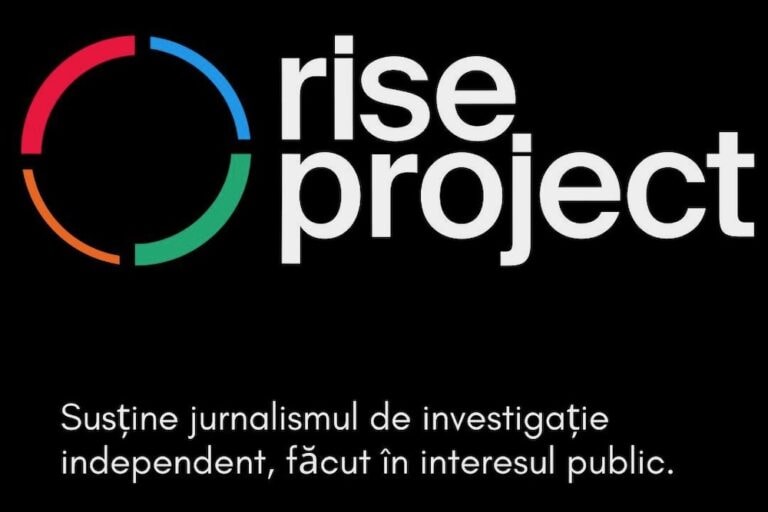(ARTICLE 19/IFEX) – The following is a 30 October 2002 ARTICLE 19 letter to Romanian President Ion Iliescu, raising the organisation’s concerns with a proposed amendment to Article 10 of Romania’s draft law on the Rompres National News Agency. It is followed by a statement outlining the relevant international standards on protection of sources: 30 […]
(ARTICLE 19/IFEX) – The following is a 30 October 2002 ARTICLE 19 letter to Romanian President Ion Iliescu, raising the organisation’s concerns with a proposed amendment to Article 10 of Romania’s draft law on the Rompres National News Agency. It is followed by a statement outlining the relevant international standards on protection of sources:
30 October 2002
Ion Iliescu
President of Romania
C/o Press Office: + 4021. 411 03 72
Spokesperson, Corina Cretu: + 4021. 312 12 47
Dear President Iliescu,
ARTICLE 19, the global campaign for free expression, is seriously concerned with your recommendation regarding Article 10 of the draft law Regarding the Organisation and Functioning of the ROMPRES National News Agency.
We understand that the draft law was returned to Parliament on October 16, 2002, accompanied by your request to amend Article 10 of the law, which guarantees the protection of journalists’ sources. We would like to draw your attention to the fact that the proposed amendment to this article, namely, to grant prosecutors the authority to order disclosure of sources, without resort to the courts and without the need to demonstrate an overriding public interest in disclosure, would be in violation of international standards of freedom of expression.
Please find attached a statement outlining the relevant international standards, in particular, the principles arising from Article 10 of the European Convention on Human Rights. We urge you to withdraw the recommendation to amend this article, in order to comply with Romania’s international obligations as a State Party to the ECHR and as a member of the Council of Europe.
Yours sincerely,
Andrew Puddephatt
Executive Director
October 2002
Statement on Protection of Sources with regard to the Romanian draft law Regarding the Organisation and Functioning of the ROMPRES National News Agency
ARTICLE 19, the Global Campaign for Free Expression, expresses serious concern at the resident’s proposal to amend Article 10 of the draft law Regarding the Organisation and Functioning of the ROMPRES National News Agency.
In its original draft, Article 10 of this Law upheld journalists’ right not to disclose their sources, except where disclosure is in the public interest and ordered by a court. However, the President decided to depart from this guarantee, writing in his letter to Parliament that “Article 10 … should include [amongst the grounds for disclosing sources] the prosecutor’s order issued in a penal cause, because it is against the public interest to protect sources which can prevent a penal investigation…”
The European Court of Human Rights has frequently stressed that freedom of expression is one of the essential foundations of a democratic society, and in this light has emphasised the importance of the principle of protection of journalistic sources:
Protection of journalistic sources is one of the basic conditions for press freedom … Without such protection, sources may be deterred from assisting the press in informing the public on matters of public interest. As a result the vital public-watchdog role of the press may be undermined and the ability of the press to provide accurate and reliable information may be adversely affected. Having regard to the importance of the protection of journalistic sources for press freedom in a democratic society and the potentially chilling effect an order of source disclosure has on the exercise of that freedom, such a measure cannot be compatible with [the right to freedom of expression] unless it is justified by an overriding requirement in the public interest (1).
Elaborating on this landmark judgment, the Committee of Ministers of the Council of Europe in March 2000 recommended that the law and practice of all member States should explicitly provide for the protection of the right of journalists not to disclose sources, subject to narrowly defined exceptions (2). In particular, it states that disclosure can be ordered only when it can be shown that (3):
i. reasonable alternative measures to the disclosure do not exist or have been exhausted by the persons or public authorities that seek the disclosure, and
ii. the legitimate interest in the disclosure clearly outweighs the public interest in the non-disclosure, bearing in mind that:
– an overriding requirement of the need for disclosure is proved,
– the circumstances are of a sufficiently vital and serious nature,
– the necessity of the disclosure is identified as responding to a pressing social need.
The Explanatory Memorandum to the Recommendation makes it clear that disclosure should be ordered only in exceptional circumstances, for instance where it is necessary for the protection of human life, the prevention of a major crime or in the defence of legal proceedings of a person who is accused or convicted of having committed a serious crime (4). Furthermore, it is crucial that the process is supervised by judicial authorities (5).
The President’s recommendation, if incorporated into the final text of the law, would result in a clear violation of these standards:
a) the law would allow for disclosure to be ordered on the authority of any prosecutor, without resort to the courts;
b) the law would fail to require the requesting authority to demonstrate an overriding public interest in disclosure, allowing disclosure to be ordered in the investigation of a minor criminal offence; and
c) the law would fail to require the exhaustion of other less intrusive means before disclosure is ordered.
As a State party to the European Convention on Human Rights and a member State of the Council of Europe, Romania is under an obligation to respect the principles arising from Article 10 of the ECHR and the recommendations of the Committee of Ministers. The implementation of the President’s recommendation would represent a breach of these obligations.
Notes:
1. Goodwin v United Kingdom, 27 March 1996, Application No. 00017488/9 (European Court of Human Rights), para 39.
2. Recommendation No. R (2000) 7 of the Committee of Ministers to Member States on the Right of Journalists Not to Disclose their Sources of Information, adopted by the Committee of Ministers on 8 March 2000 at the 701st meeting of the Ministers’ Deputies.
3. Recommendation, Principle 3b.
4. Explanatory Memorandum, para. 38.
5. Recommendation R(2000)7, Principle 5.
Recommended Action
Similar appeals can be sent to:Ion Iliescu
President of Romania
C/o Press Office: + 4021 411 03 72
Spokesperson, Corina Cretu: + 4021 312 12 47Please copy appeals to the source if possible.


